This article explains how to allow or block third-party cookies in Microsoft Edge.
Microsoft Edge is the default browser in Windows 11. However, users can switch to their preferred or favorite browser anytime. Edge is based on Chromium, similar to Google Chrome and other Chromium-based browsers today.
You can block cookies if you prefer not to allow third-party websites to store cookies on your computer. However, remember that doing so may cause some web pages to load incorrectly or display improperly.
Blocking third-party cookies can alter your web experience. Many websites will notify you that enabling cookies is required to access their content.
Blocking third-party cookies stops websites from tracking you across the web.
Allow or block third-party cookies in Edge
Users can block third-party cookies in the Microsoft Edge browser, which may cause issues on some websites you visit.
Here’s how to do it.
First, open the Microsoft Edge browser.
Then click Settings and more (Alt+F), the 3 horizontal dots button on the top right corner, and select Settings.

Select “Privacy, search, and services” on the Settings page on the left.
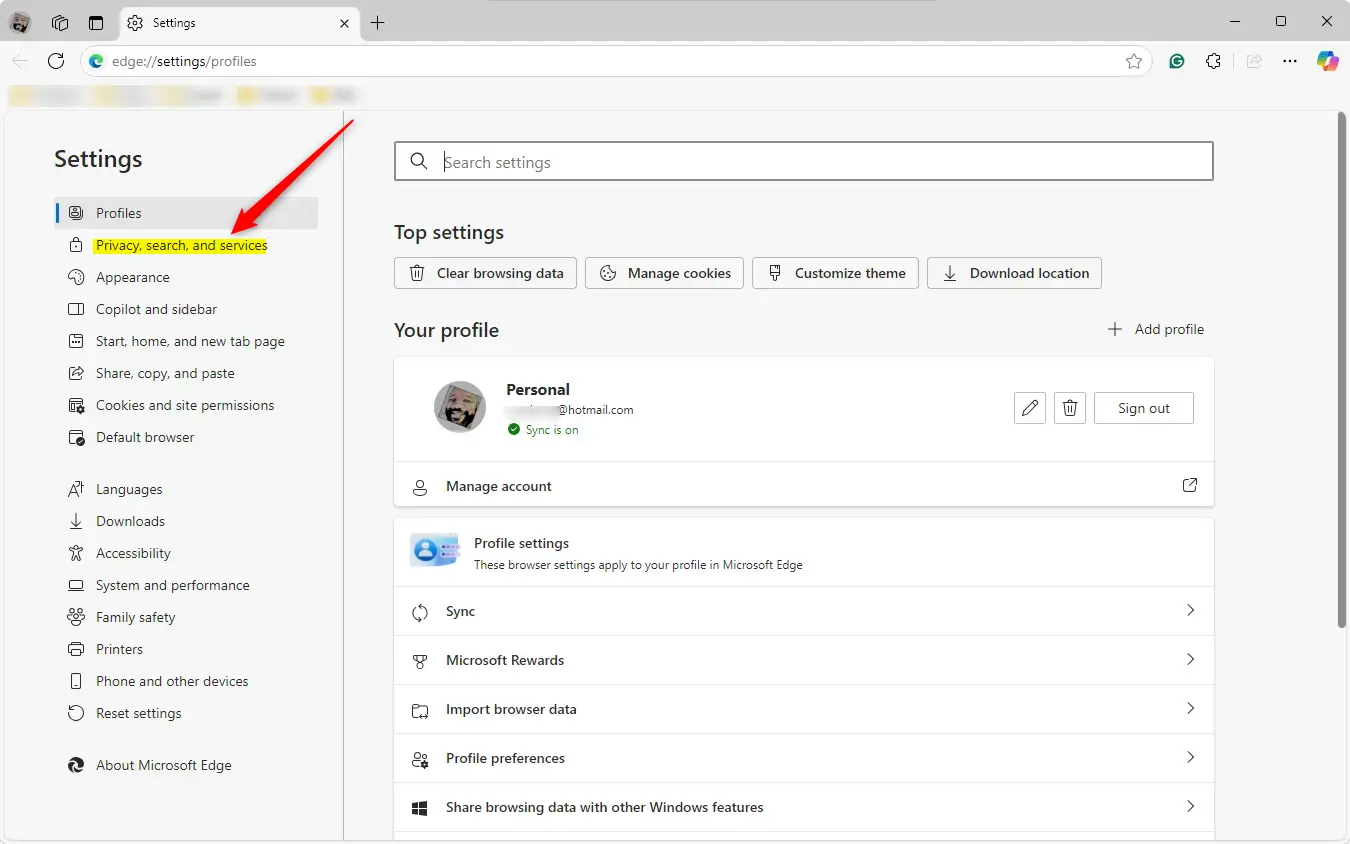
Next, select the “Cookies” tile to expand it.
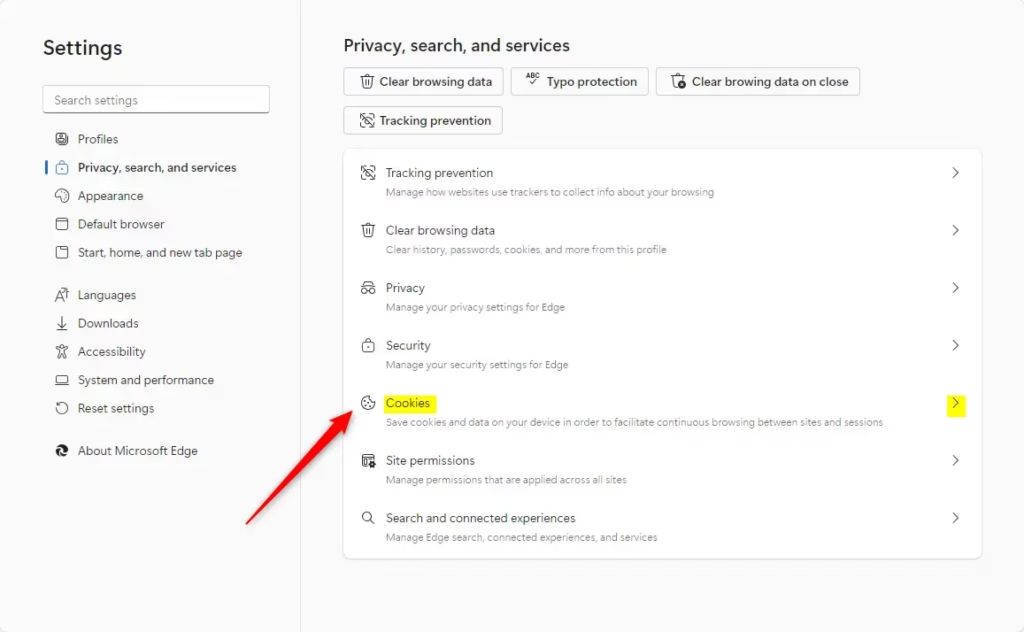
On the “Cookies” settings page, select the “Block third-party cookies” tile. Then, toggle the button to enable or disable it.
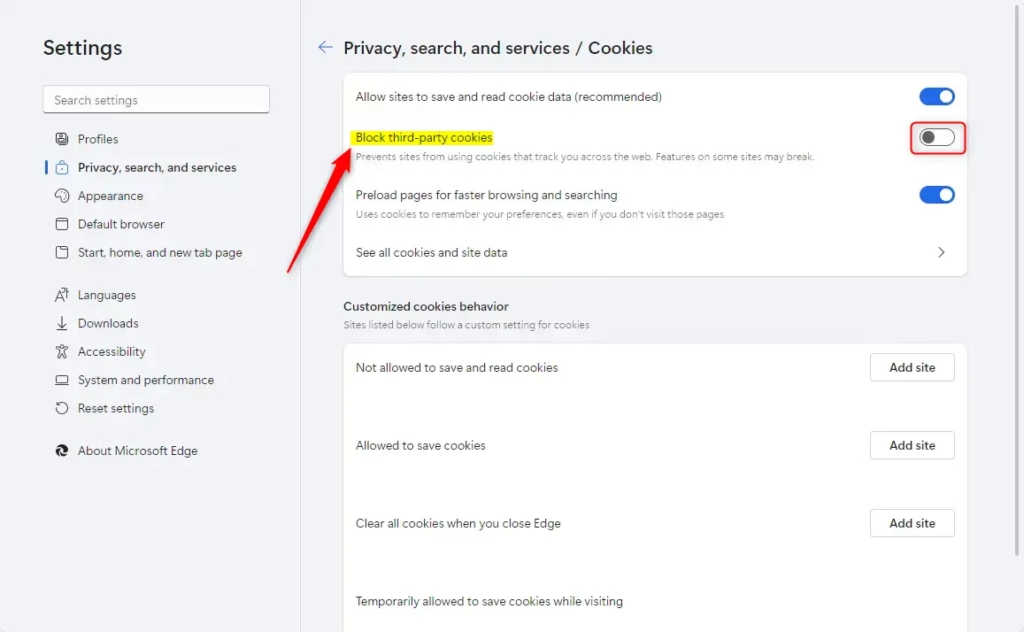
You can close the Edge settings page when finished.
Allow or block third-party cookies in Edge via Registry
Another way to allow or block third-party cookies in Edge is to use Windows Registry Editor.
First, open the Windows Registry and navigate to the folder key path below.
Remember to back up your registry before making any changes, or create a System Restore point as a precaution.
Computer\HKEY_LOCAL_MACHINE\SOFTWARE\Policies\Microsoft\Edge
Right-click Edge > New > DWORD (32-bit) Value and name the new DWORD BlockThirdPartyCookies.
Double-click and open the BlockThirdPartyCookies name and set the value to 1 and enable blocking third-party cookies in Edge.
To disable blocking third-party cookies, set the value to 0.
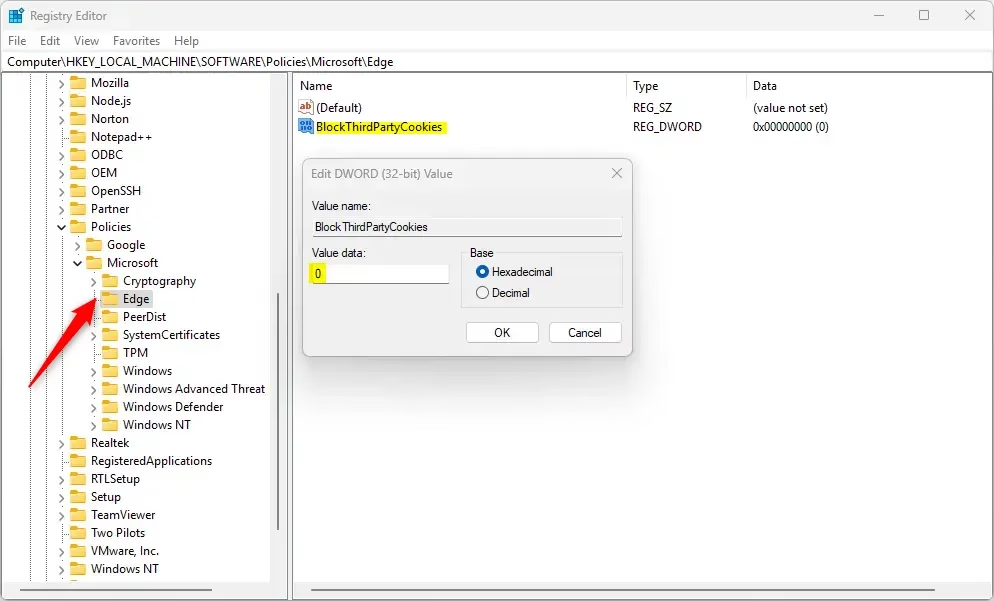
Delete the “BlockThirdPartyCookies” name created above to restore the default behavior and allow users to enable or disable the feature in Edge’s UI.
BlockThirdPartyCookies
You may have to reboot your computer to apply the changes.
That should do it!
Reference:
Conclusion:
- Blocking third-party cookies in Microsoft Edge can enhance your privacy by preventing websites from tracking your browsing habits.
- Adjusting cookie settings may sometimes lead to issues with website functionality or layout.
- Choosing the cookie settings that best align with your web browsing needs is essential.
- Users have multiple options for managing cookie preferences through the Edge settings or the Windows Registry.
- Reviewing and updating your privacy settings can help maintain a secure and personalized browsing experience.
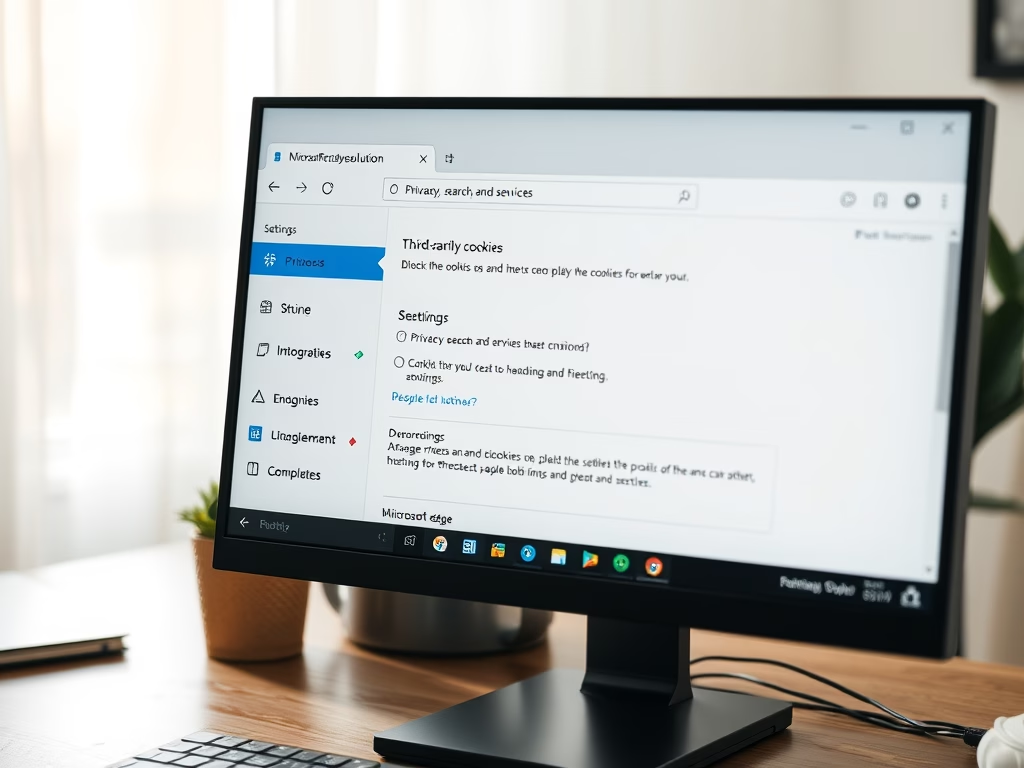



Leave a Reply